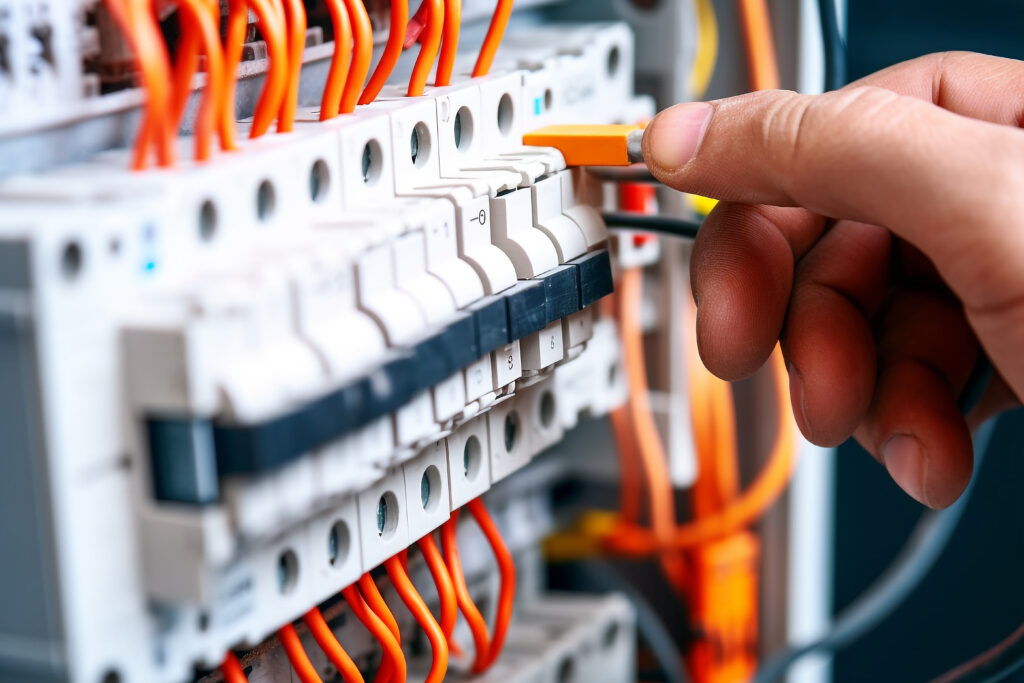In the realm of home electrical systems, few things are as frustrating as a breaker that keeps tripping. It disrupts your routine, leaves you in the dark, and raises questions about safety. But fear not – with a bit of knowledge and the right approach, you can tackle this issue like a pro. Let’s explore what to do when a breaker keeps tripping, how to identify the culprit, and essential insights into breaker lifespan and replacement.
Tripped Breaker Troubleshooting
When faced with a breaker that repeatedly trips, the first step is to identify the underlying cause. Start by resetting the tripped breaker by firmly switching it to the “off” position and then back to “on.” Next, assess the situation – consider what appliances or devices were in use when the breaker tripped and whether there may be an overload or short circuit. Unplug or turn off any devices connected to the affected circuit and attempt to reset the breaker again. If the breaker continues to trip, further investigation is needed to pinpoint the cause.

How do you find out what is tripping a breaker?
Finding out what is tripping a breaker involves a systematic approach to troubleshooting. Begin by unplugging or turning off all devices and appliances connected to the affected circuit. Next, reset the tripped breaker and gradually reintroduce power to each device one at a time, monitoring for any signs of overload or short circuit. If the breaker trips immediately upon resetting or when a specific device is powered on, it’s likely that device is the culprit. Further inspection or repair may be necessary to resolve the issue.
How many times can a breaker trip before it needs to be replaced?
A circuit breaker is designed to protect electrical circuits from overloads and short circuits by automatically tripping and interrupting the flow of electricity. While occasional tripping is normal and expected, frequent or repeated tripping may indicate an underlying issue that needs to be addressed. Generally, modern circuit breakers are designed to withstand numerous trips without significant degradation in performance. However, if a breaker trips excessively or fails to reset, it may be a sign of internal damage or wear and tear, necessitating replacement.
How do you know if a breaker is bad?
Determining if a breaker is bad requires a few simple tests to assess its functionality. Start by visually inspecting the breaker for any signs of physical damage, such as cracks, burns, or discoloration. Next, use a multimeter to test for continuity across the terminals of the breaker. If the multimeter indicates an open circuit or infinite resistance, it may be a sign that the breaker has failed and needs to be replaced. Additionally, if the breaker trips consistently or refuses to reset despite troubleshooting efforts, it may be a sign of internal damage or wear and tear.

What is the lifespan of a circuit breaker?
The lifespan of a circuit breaker can vary depending on several factors, including usage, environmental conditions, and quality of construction. In general, most circuit breakers have a lifespan of 15 to 30 years, although some may last longer with proper maintenance and care. However, frequent tripping, overloading, or exposure to extreme temperatures can shorten the lifespan of a breaker. It’s essential to monitor your home’s electrical system regularly and replace any aging or malfunctioning breakers to ensure the safety and reliability of your electrical system.
In conclusion, dealing with a breaker that keeps tripping can be a frustrating experience, but with a methodical approach and some basic troubleshooting skills, you can identify and resolve the underlying issue. By understanding the causes of tripped breakers, knowing how to test and replace faulty breakers, and being aware of breaker lifespan considerations, homeowners can ensure the safety and functionality of their electrical systems for years to come.
Contact An Electrician
In cases where troubleshooting a tripping breaker becomes complex or if you feel uncertain about handling electrical components, it’s wise to contact a licensed electrician for assistance. Professional electricians possess the expertise and tools necessary to diagnose and address electrical issues safely and effectively, minimizing the risk of injury or damage to your home’s electrical system. If you’re in the Morehead City, NC area, Coastal Home Services stands ready to assist you with all your electrical needs. With their team of skilled technicians and commitment to exceptional service, you can trust Coastal Home Services to quickly and efficiently resolve any breaker-related issues, ensuring the safety and reliability of your home’s electrical system.


